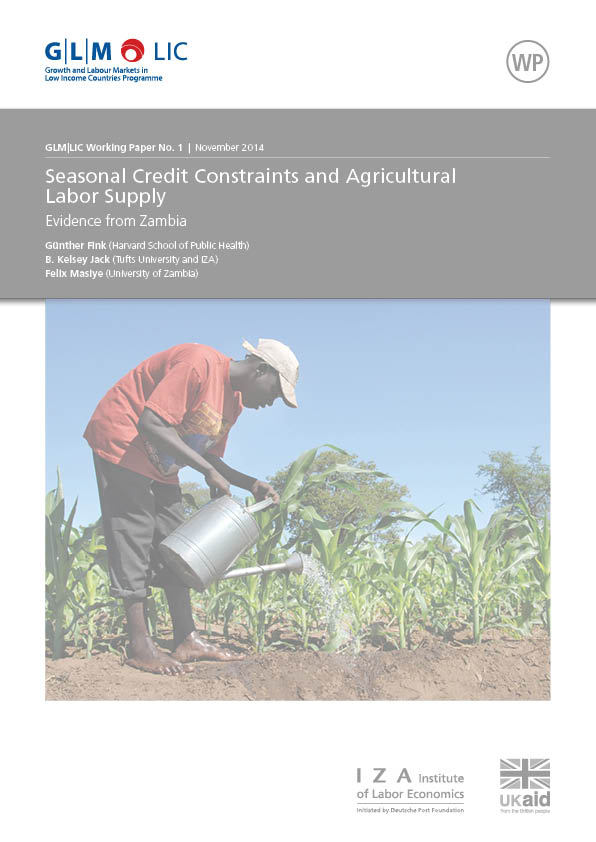Small-scale farming remains the primary source of income for a majority of the population in developing countries. While most farmers primarily work on their own fields, off-farm labour is common among small-scale farmers. A growing literature suggests that off-farm labour is not the result of optimal labor allocation, but is instead driven by households’ inability to cover short-term consumption needs with savings or credit. We conduct a field experiment in rural Zambia to investigate the relationship between credit availability and rural labour supply. We find that providing households with access to credit during the growing season substantially alters the allocation of household labour, with households in villages randomly selected for a loan program selling on average 25 percent less off-farm labour. We also find that increased credit availability is associated with higher consumption and increases in local farming wages. Our results suggest that a substantial fraction of rural labor supply is driven by short term constraints, and that access to credit markets may improve the efficiency of labour allocation overall.
